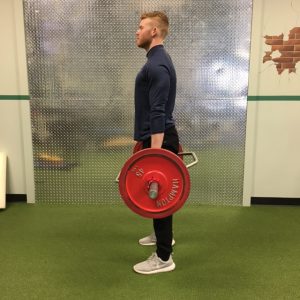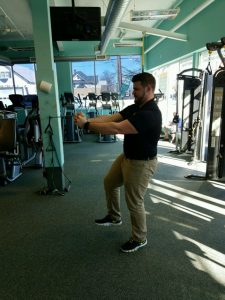Resistance training is a major component for progression in athletic performance. Although the best way to improve performance would be to practice the skills specific to that sport, resistance training allows athletes to target certain muscles/muscles groups. Strength training off the playing field will help them become stronger for their sport.
Off-season resistance training is a great way to get ahead of the competition without interfering with in-season practice schedules. In addition, due to its length, the off-season allows for longer periods of training for progressing specific resistance exercises. A traditional offseason resistance training program for the majority of athletes should be split in to 3 phases; Hypertrophy, Strength, and Power.
Hypertrophy Phase
Hypertrophy means muscle growth (increases in size of muscle fibers). Increased muscle size translates to muscles that are more efficiently capable of becoming stronger muscles. This type of training is characterized by high volume workouts; high sets and repetitions, low to moderate weights, and smaller rest times.
Strength Phase
Strength is the ability to move the most possible weight. Utilizing the increased muscle size from the hypertrophy phase, athletes should be safely attempting heavy lifts in order to increase overall strength. The strength phase is characterized by lower repetitions, increased weights and rest times.
Power Phase
Power is defined as ones ability to perform an exercise over a specific unit of time. Power exercises are characterized as explosive, sport-specific movements that involve strength and speed (Olympic lifts, box jumps, sled push/pulls etc.) Utilizing strength gains from the previous phase, athletes should be able to move heavier weights more quickly and explosively. Workouts should be sport specific and focus on the speed and efficiency of heavy lifting. The power phase is characterized by lower repetitions, moderate to heavy weights, and moderate rest times.
Following the final phase of the off-season, athletes should decrease their time in the weight room in order to recover and make time for pre-season practice in their respective sports. A well planned training program can keep an athlete in shape during the long off-season and give them the boost they need to be a step ahead of the competition!
By David McCalla


 Speaking from personal experience, not less than a week ago I was playing basketball, jumped up for the ball and came down with all my weight and ended up rolling my ankle. Not only is this terrifying but an eye-opener as well. Escaping with just a bad “grade 2 sprain,” I could have easily fractured a bone or worse. Why wasn’t it worse? Luck, maybe. The fact that I have a strong muscular foundation surrounding and supporting my ankle is what kept me from completely shattering it. The muscles around your ankle hold it together, think of it like a house; you wouldn’t want your house built out of sticks. Same premise applies.
Speaking from personal experience, not less than a week ago I was playing basketball, jumped up for the ball and came down with all my weight and ended up rolling my ankle. Not only is this terrifying but an eye-opener as well. Escaping with just a bad “grade 2 sprain,” I could have easily fractured a bone or worse. Why wasn’t it worse? Luck, maybe. The fact that I have a strong muscular foundation surrounding and supporting my ankle is what kept me from completely shattering it. The muscles around your ankle hold it together, think of it like a house; you wouldn’t want your house built out of sticks. Same premise applies.
